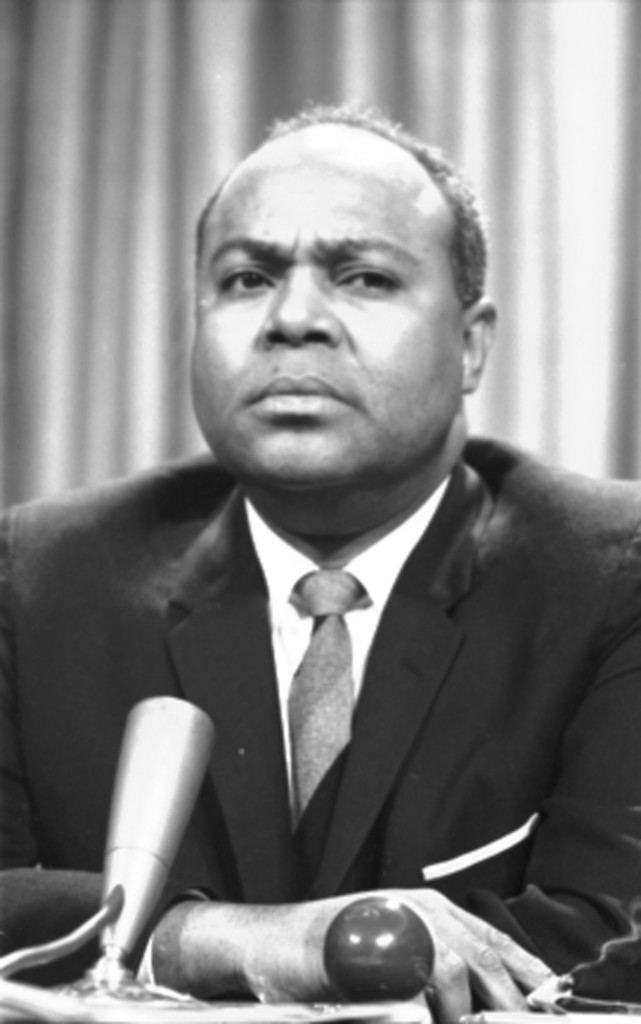When officially recognizing Black History Month in February 1976, President Gerald Ford called on Americans to “seize the opportunity to honor the too-often neglected accomplishments of black Americans in every area of endeavor throughout our history.” Forty years later, it is appropriate to recognize the connection between the Church and the battle for racial equality in America as Black History Month nears an end.
Of course, there are many denominations, local churches, and individual Christians who deserve recognition. However, there’s one particular group I want to focus on: African-American Methodists who championed the fight for civil rights and abolition.
It makes sense that so many African-American Methodists were prominent leaders on racial equality. Methodism’s founder John Wesley, who himself opposed slavery, emphasized the importance of the Church’s social and political witness. He believed that that working for social transformation was an extension of the Christian gospel, and he lived out his worldview.
Theologian Thomas Oden, Board Member Emeritus at the Institute on Religion and Democracy (IRD), observed that Wesley believed the entire community was accountable for remaining sin in a society. Oden developed this thesis in his book, John Wesley’s Teachings Volume IV: Ethics and Society, published in 2014.
“We do not live a solitary existence as if in an individualistic bubble, but in a community called to social accountability,” Oden said. “The sin we knowingly do contributes to the burden of sin dispersed through the whole society.”
So in commemoration of Black History Month, I’ve compiled a list of ten African-American Methodists who led the fight against racial injustice in the spirit of John Wesley. I split the list into two parts. Today in Part 1, I present four leaders who were part of the civil rights movements. In Part 2, I share six leaders who fought to abolish slavery.
So here are four African-American Methodists and civil rights leaders, profiled in reverse chronological order of their birth:

James Lawson Jr. (b. 1928) is the son and grandson of Methodist ministers. He served as a longtime UMC pastor in Memphis and Los Angeles after serving as a Methodist missionary in India. Inspired by his Methodist faith and the philosophy of Mahatma Gandhi, Lawson has championed nonviolent resistance throughout his career. Recalling the words of Christ, he argued, “If someone slaps you on the one cheek, you turn the other cheek, which is a form of resistance.”
Lawson most famously implemented this strategy during the civil rights movement. Martin Luther King Jr. called him “the mind of the movement” and “the leading theorist and strategist of nonviolence in the world.” Lawson helped organize the lunch counter sit-ins in Nashville, Tennessee. The Civil Rights Digital Library Initiative called the campaign among the “most successful” of its kind.

Joseph Lowery (b. 1921) founded the Southern Christian Leadership Conference (SCLC) with Rev. Dr. Martin Luther King Jr. He was the organization’s first vice president and later its longtime president. Lowery and King met in the mid-1950s, according to the United Methodist Church (UMC). As a pastor at Warren Street United Methodist Church and an important community leader in Mobile, Alabama, Lowery played a key role in organizing support for the Montgomery Bus Boycott.
In 2009, President Barack Obama awarded Lowery the National Medal of Freedom for his work. The White House commended him for his continued activism on “important civil rights issues in the U.S. and worldwide.”

James Farmer Jr. (1920-1999) lived to be “the last survivor of the ‘Big Four’ who shaped the civil-rights struggle in the United States,” according to The New York Times. He founded the SCLC with Lowery and King, and was the primary founder of Congress of Racial Equality.
Farmer received his Bachelors in Divinity from Howard University with the intention of becoming a Methodist minister like his father. However, because of ongoing segregation in the Methodist Church, he decided against it. Although this decision disappointed James Farmer Sr., the younger Farmer “was quick to assure his father that his turning away from Methodism did not represent any lessening of his belief in Jesus.”
Still informed by his Methodist upbringing, Farmer instead pursued activism in the civil rights movement. Like Lowery, he embraced the philosophy of non-violent resistance inspired by Gandhi.

Rosa Parks (1913-2005) was as a lifelong member of the African Methodist Episcopal (AME) Church. Born in Tuskegee, Alabama, Parks’ parents baptized her into the AME Church at two years old. She quickly developed a faith of her own. “With no prodding from her parents, Rosa McCauley [later Parks] was soon performing daily devotions, praying frequently, and going to church as often as possible,” Douglas Brinkley wrote in his biography of Parks.
Parks gained national fame after refusing to give up her bus seat to a white man in Montgomery, Alabama. This impromptu act launched the Montgomery Bus Boycott which involved thousands of protesters, eventually forcing the city to give in after thirteen long months. Yet her activism didn’t start or stop there. The National Park Service noted her defiance was “a natural extension of a lifelong commitment to activism.” She had a history of resisting ordinances mandating segregated buses. She was also actively involved with the NAACP for many years before and after the boycott. Her work earned her the title “mother of the civil rights movement.”
No comments yet




